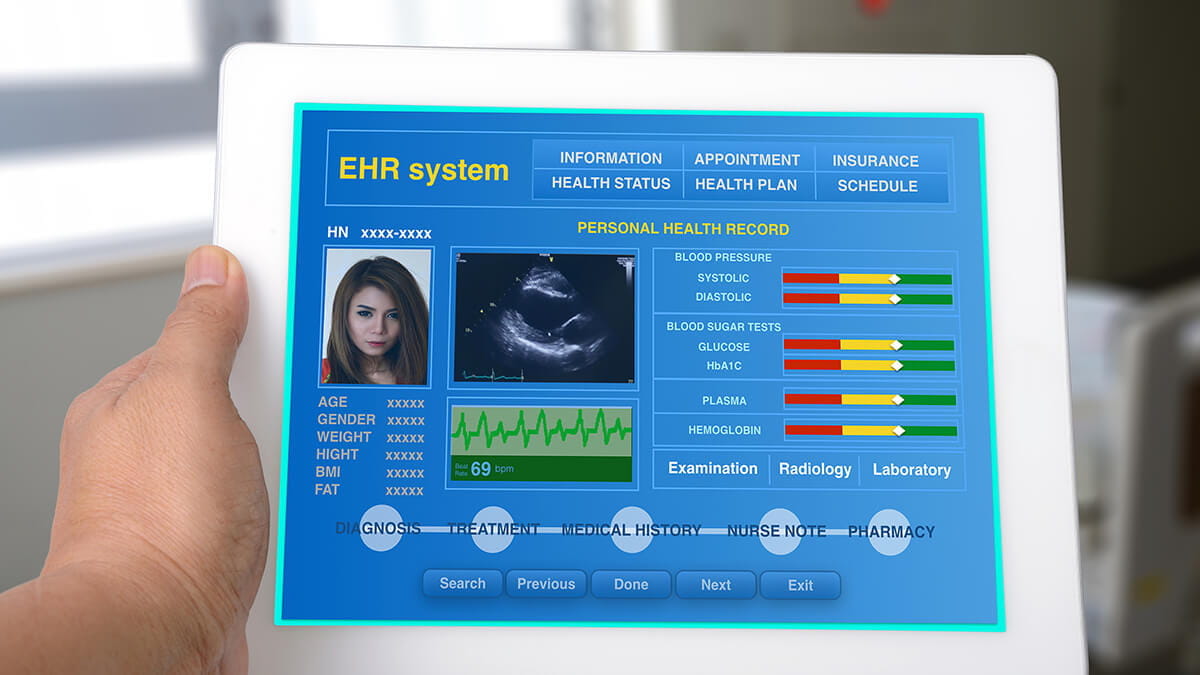With the Affordable Care Act’s federal mandate to make the switch to electronic health records, the need for health informatics professionals is higher than ever.
But what is health informatics? Why is it important? And how can you enter a nursing career in health informatics? From health informatics jobs to health informatics degrees for nurses, we’ve rounded up some common questions and answers about this expanding field to see if it’s right for you.
What is health informatics?
Health informatics, also sometimes referred to as “medical informatics,” sits at the junction of two thriving industries: healthcare and information technology (IT). Those in this interdisciplinary field design and develop the information systems necessary for efficient acquisition, storage, and distribution of health-related data.
Why is health informatics important?
According to the U.S. Department of Health and Human Services, the use of electronic health records “reduce[s] paperwork and administrative burdens, cut[s] costs, reduce[s] medical errors and most importantly, improve[s] the quality of care.”1 From administrative offices to operating rooms, health informatics is the driving force behind enterprise-wide data systems that collect, store, and make electronic health records easily accessible to healthcare professionals.
How can I enter the field of health informatics?
If you’re a nurse and interested in a career in health informatics, you’ll need an ability to integrate data, information and knowledge to support patients, nurses and other caregivers in their decision making in all roles and settings. A nursing-centric health informatics degree, at the master’s level, is the best way to get the skills and knowledge you need to enter and thrive in this field. One of the best degrees you can earn is a Master of Science in Nursing with a nursing informatics specialization.
What can I learn in a master’s in nursing program focused on health informatics?
A good nursing informatics master’s program provides students with in-depth knowledge of:
- Health information technology
- Health information systems management
- Quality assessment and improvement
- Strategic and tactical planning
- Evidence-based research and evaluation
- Business and financial aspects associated with health information
Curriculum within an MSN degree program focused on nursing informatics encompasses the fundamentals of information technology; the theoretical framework of health informatics; critical issues and challenges within the field; contemporary topics in the U.S. healthcare system; the legal, regulatory, and ethical issues associated with health informatics; and much more.
What’s the career forecast for health informatics?
With projected job growth of 11% between 2018 and 2028,2 the forecast for health informatics careers is bright, with career options plentiful and diverse.
An MSN nursing informatics program can help prepare you to work in any health-related field with an informatics component, including but not limited to home care, telemedicine, and medical application programming and development. Depending on your experience, common health informatics jobs for nurses include:3
- Informatics Nurse Specialist
- Director of Clinical Information
- Clinical Analyst
- Clinical Informatics Coordinator
- Informatics Consultant
- Informatics Faculty
- Informatics Researcher
- Manager of Informatics
Should I earn an MSN Degree on campus or online?
The decision on how to earn a Master of Science in Nursing—online or on campus—is a personal one based on schedule, time commitments, and personal preference.
Many working professionals find the convenience of online MSN programs ideal for balancing work and family obligations, as all class discussions and assignments can be completed from the comfort of home.
If online education seems like the right choice for you, you should take a look at Walden University. Not only does Walden offer MSN degree programs online, it is number one in Master of Science in Nursing graduates in the U.S.4 Students from all across the nation attend Walden’s MSN program to take advantage of the university’s eight MSN specializations, its team-based, interdisciplinary approach, and its excellent MSN faculty, which is 100% doctorally prepared. If you want to enter health informatics, Walden is an excellent choice.
Ready to improve the quality, safety, cost-effectiveness, and accessibility of healthcare with a career in health informatics? Discover how you can change your world and the world of others with an online master’s in nursing with a nursing informatics specialization from Walden University.
1Source: www.hhs.gov/healthcare/facts-and-features/key-features-of-aca-by-year/index.html
2Source: https://www.bls.gov/ooh/healthcare/medical-records-and-health-information-technicians.htm
3Source: Career options may require additional experience, training, or other factors beyond the successful completion of this degree program.
4Source: Source: National Center for Education Statistics (NCES) IPEDS database. Retrieved July 2017, using CIP code 51.3801 (Registered Nursing/Registered Nurse). Includes 2016 preliminary data




